051 8439995, 042 35911332
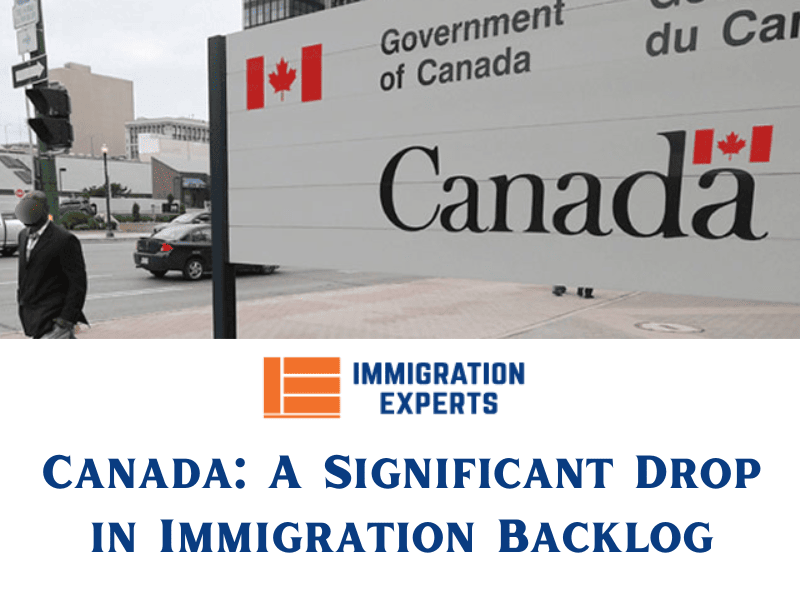
Newly released data from the Immigration, Refugees, and Citizenship Canada (IRCC) reveals a significant decrease in the immigration backlog, currently hovering around 800,000. This update comes despite the recent strike that occurred within the IRCC.
As of April 30, 2023, the backlog stands at approximately 809,000 cases, marking a noteworthy decline from the previous month’s total of 896,000 recorded by the end of March 2023.
In a remarkable turn of events, Immigration, Refugees, and Citizenship Canada (IRCC) managed to process an astonishing number of immigration applications within their established service standards. As of April 30, approximately 1,197,000 applications were still being diligently worked on by the IRCC, adhering to their prescribed timelines.
These figures are quite astonishing, especially because IRCC employees were engaged in a strike that spanned from April 19, 2023, to April 30, 2023.
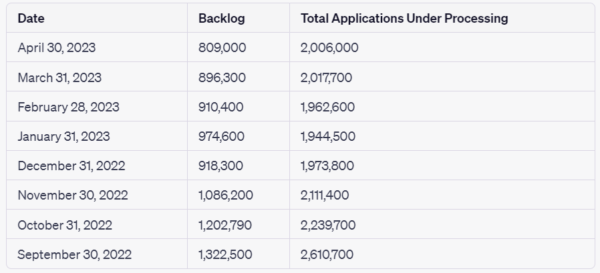
The IRCC has a sizable task when considering the applications being processed under the set service requirements. A total of about 2 million applications were still being processed as of April 30.
Things You Will Find In This Page
Differentiating Backlog and Service Standards Data in the Immigration System
It is crucial to gain a clear understanding of the distinction between the backlog and service standards data, as explained by the Immigration, Refugees, and Citizenship Canada (IRCC).
The backlog refers to the number of pending immigration applications that have not yet been processed. It represents the accumulation of cases that are awaiting assessment and a decision. The backlog can fluctuate over time, influenced by factors such as the number of incoming applications and the processing capacity of the IRCC.
On the other hand, service standards data provides insight into the number of applications being processed within the timeframe set by the IRCC as their target processing time. This data indicates the efficiency and effectiveness of the IRCC in meeting its own established processing standards. Applications within the service standards are being actively worked on and progressing through the evaluation and decision-making stages.
To illustrate the distinction, let’s take the example of a spousal sponsorship application and its associated service standard. The IRCC has established a service standard of 12 months for processing such applications. If an application is currently being processed and has not exceeded the 12-month timeframe, it is not categorized as part of the backlog. Instead, it is considered to be within the normal processing timeframe.

Only when a spousal sponsorship application’s processing takes longer than the required 12-month period, it is said to be backlogged.
High-Skilled Individuals in the Federal Immigration System, including Express Entry
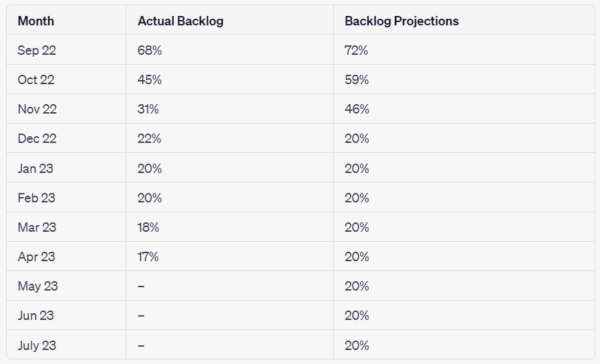
Provincial Nominee Program under Express Entry System
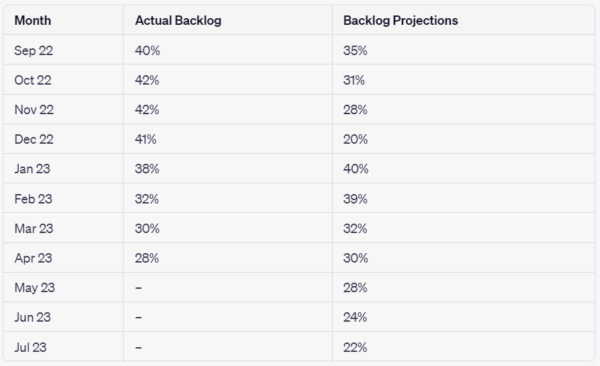
Dependents Applications
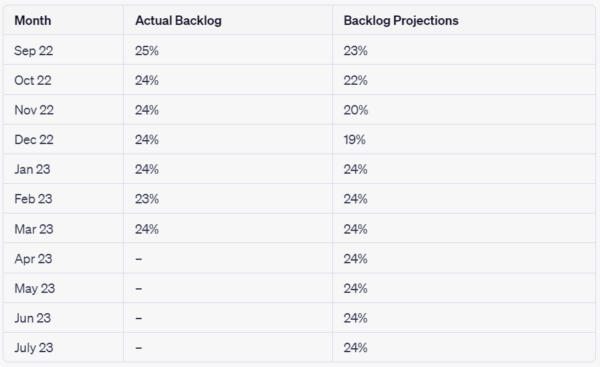
Backlog Projections of Citizenship
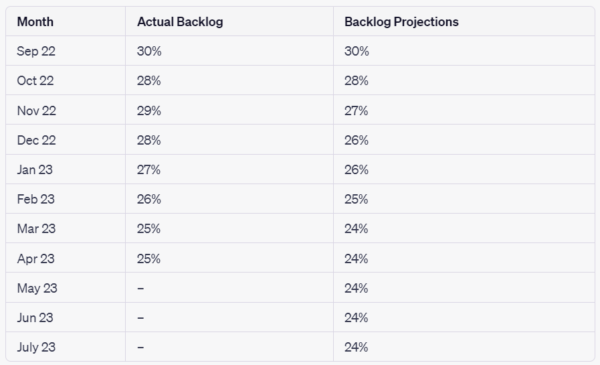
Applications by Study Permit
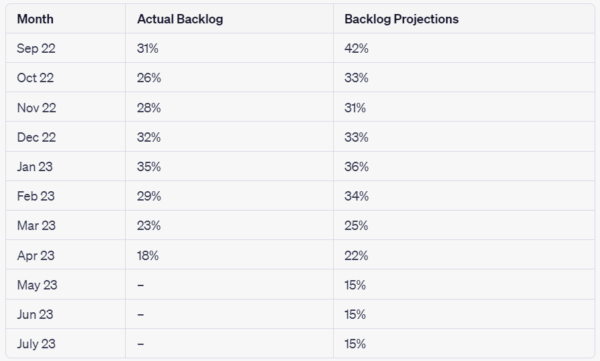
Applications by Work Permit
Roughly 69%, of applications for work permits come via the Canada-Ukraine Authorization for Emergency Travel.
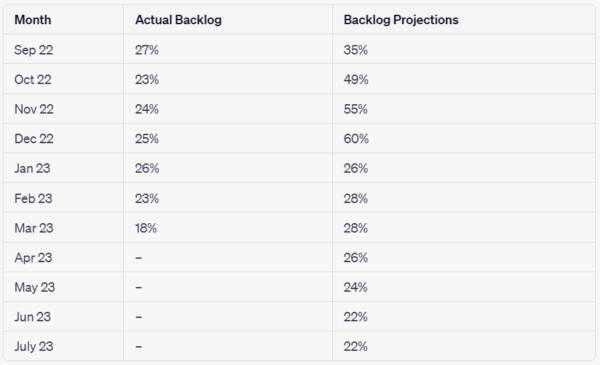
Applications by Temporary Resident Visa or Visitor Visa
Roughly 20% of the applications for visitor visas or temporary resident visas originate from the CUAET (Canada-Ukraine Authorization for Emergency Travel).
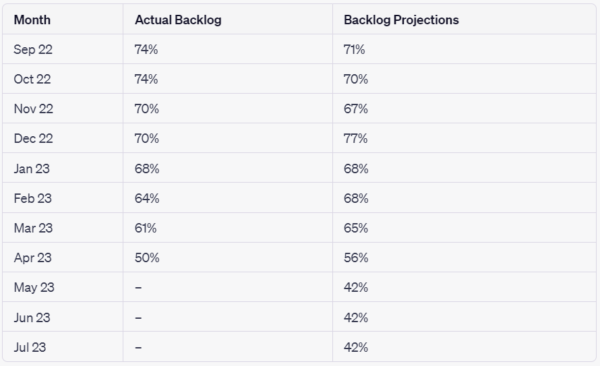
Recent Updates on IRCC Backlog
As of April 30, 2023, the backlog of the Immigration, Refugees, and Citizenship Canada (IRCC) stood at 809,000, marking a decrease from the previous month’s total of 896,000.
In addition to the backlog, the IRCC was actively handling 1,197,000 immigration applications in line with their service standards.
Overall, the total number of applications being processed as of April 30 amounted to approximately 2 million.
